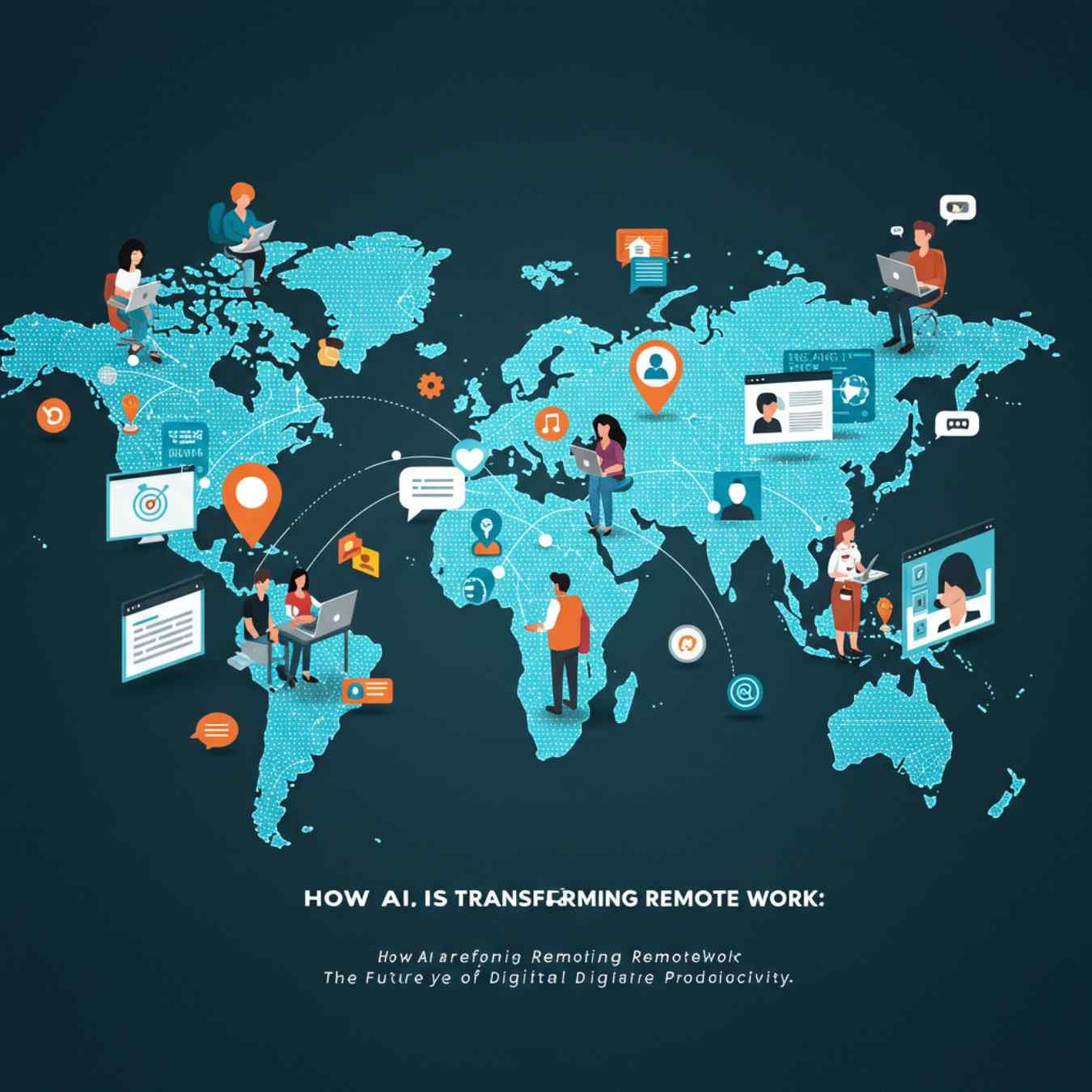How AI Is Transforming Remote Work: The Future of Digital Productivity

“Remote work isn’t just a trend—it’s the foundation of the modern workforce.”
Imagine starting your day with no need to sift through a mountain of emails, schedule endless meetings, or toggle between five different apps just to stay on track. Thanks to artificial intelligence (AI), that dream is rapidly becoming reality for remote workers around the world.
As remote work continues to reshape how we operate, AI is stepping in not just to support, but to transform the way we work. From smart scheduling assistants to personalized productivity bots, AI is unlocking a more efficient, focused, and flexible work environment. Whether you're a digital nomad exploring new cities, a freelancer balancing multiple projects, or an employee navigating hybrid schedules, AI tools are changing the game, and this article explores exactly how.
1. Automating Repetitive Tasks
One of the most significant benefits of AI is its ability to automate repetitive and mundane tasks that would otherwise consume valuable time. For remote workers, these tasks can range from scheduling meetings to sorting through emails or handling customer inquiries.
AI-powered tools such as Clara can schedule meetings based on your calendar preferences, eliminating the back-and-forth emails that often accompany setting up appointments.
Similarly, AI chatbots like those powered by Intercom, Zendesk, or Drift can field customer service queries, resolve issues, and even suggest solutions based on past interactions.
2. Enhancing Communication and Collaboration
Remote work often brings with it the challenge of communication, as teams are no longer in the same location. AI-powered communication tools are bridging the gap by providing more efficient and effective ways to stay connected.
Tools like Otter.ai or Rev.com use AI to transcribe meetings in real time. These tools can even summarize key points, highlight action items, and integrate with platforms like Zoom and Google Meet.
AI also improves platforms like Slack and Microsoft Teams by automating task assignments, prioritizing messages, and integrating with bots to streamline workflows.
For video conferencing, Zoom and Google Meet offer AI features like background noise cancellation, automatic captioning, and background blur, enhancing clarity and reducing distractions.
3. Smart Project Management
Remote teams rely on project management tools like Asana, Trello, and Monday.com to track progress and deadlines. With AI, these platforms become even smarter.
For example, ClickUp uses AI to offer predictive analytics, automatically prioritize tasks, and provide performance insights. This helps managers make better decisions and optimize team workloads.
AI tools can also help with resource allocation and capacity planning, key to maintaining productivity across time zones.
4. Personalized Digital Assistants
AI-powered personal assistants such as Google Assistant, Siri, and Amazon Alexa manage schedules, set reminders, and streamline workflows for remote workers.
Writing and productivity tools like Grammarly offer smart suggestions based on tone and context, while platforms like Notion integrate AI to help structure notes and tasks.
Automation tools like Zapier and IFTTT connect your apps and automate workflows. For example, creating a new task in Trello can automatically send a notification via Slack.
5. Enhancing Data Analysis and Decision Making
AI shines in analyzing large datasets quickly and accurately. Tools like Tableau and Power BI offer data visualization and trend analysis for more informed decision-making.
Marketing platforms like HubSpot leverage AI to analyze customer behavior, personalize outreach, and recommend campaign strategies, making remote work in marketing more efficient and targeted.
6. Fostering Well-Being and Work-Life Balance
AI also supports mental wellness and time management. Apps like Headspace use machine learning to suggest personalized meditation exercises.
Productivity trackers like RescueTime and Toggl help remote workers manage their time better and avoid burnout by offering detailed insights into how time is spent during the day.
7. The Future of AI in Remote Work
As AI continues to evolve, expect more personalized experiences and smarter automation. Future tools may offer adaptive interfaces based on your workflow, better integration across global teams, and real-time coordination across time zones.
Virtual assistants may evolve to proactively suggest optimal times for deep work, recommend learning resources based on your work history, or even gauge your stress levels through sentiment analysis.
Wrapping up
Remote work isn’t going anywhere, and neither is AI. In fact, the two are becoming inseparable. Whether it's streamlining meetings, managing tasks, or helping you find more time for life outside of work, AI is no longer just a futuristic concept, it’s your silent partner in productivity.
If you're still relying solely on manual workflows, it's time to reconsider. The future of work favors those who leverage smart tools, adapt quickly, and embrace innovation.
So, ask yourself: What can I automate today to focus more on what matters most tomorrow?
Take a moment to explore just one AI tool mentioned in this article. Test it out. Watch how much smoother your day becomes. Because with the right support, remote work isn’t just possible, it’s powerful.
